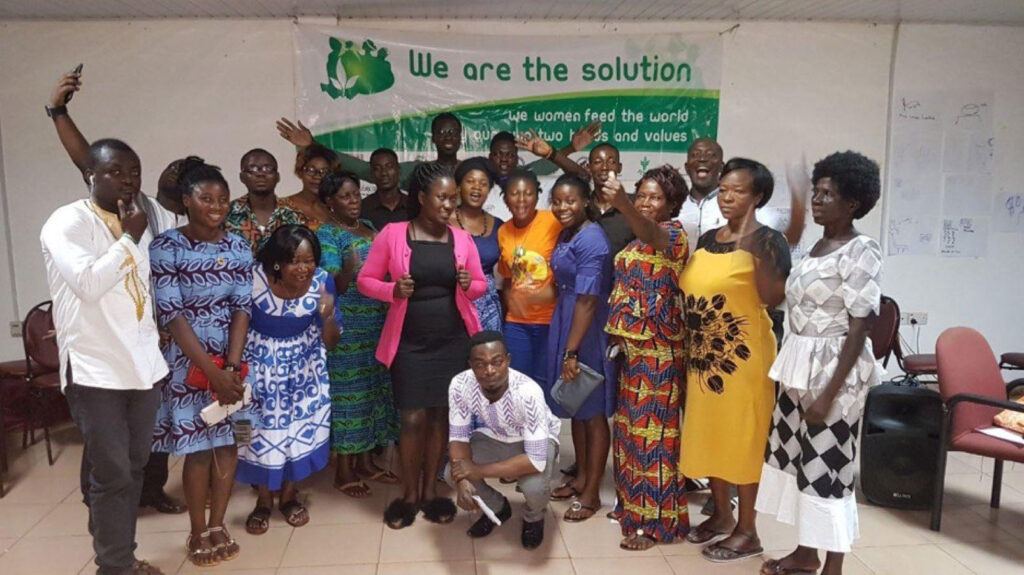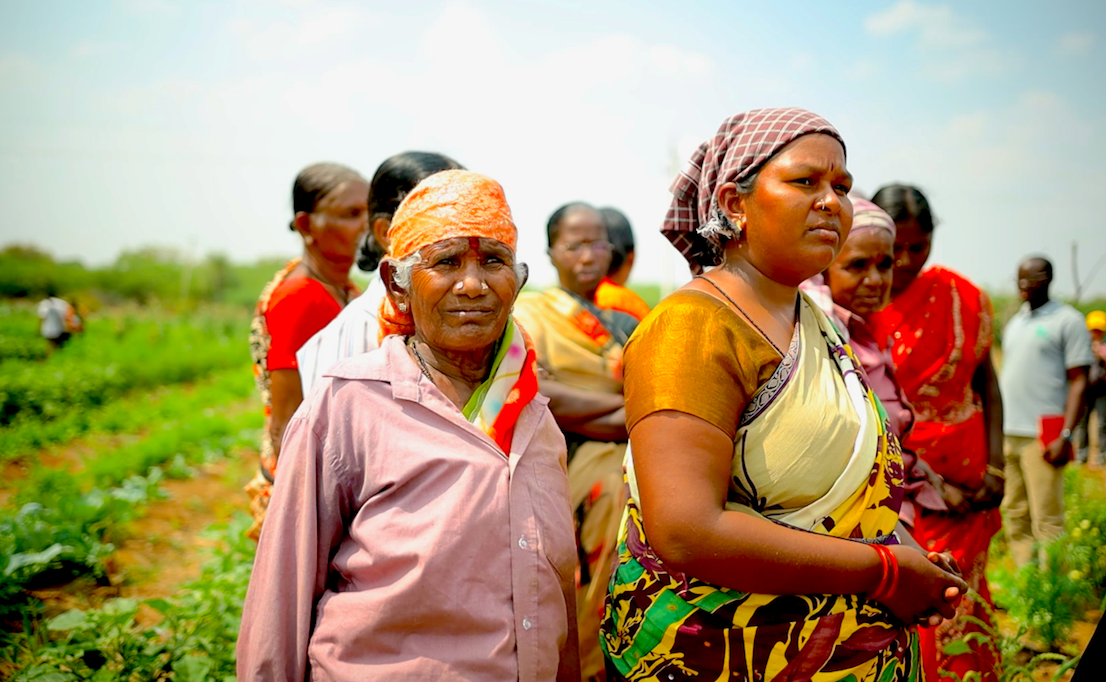Nearly 70% of the world’s food is produced by small farmers, in some regions of Africa and India that number is even higher, and at least half of these farmers are women. Our industrial food system, structured around unsustainable extraction, entrenches patterns of patriarchy that are harmful to women. A food system transformation is urgent as we face a polycrises of hunger, climate crisis, and biodiversity loss—and along with it gender inequity. An agroecological transition can address these issues, while simultaneously producing healthy, abundant, culturally appropriate foods by and for local communities around the world.
The Agroecology Fund operates with the support of many global advisors who hold diverse roles and perspectives on the agroecology movement. They each have their own areas of expertise ranging from women’s and Indigenous leadership to technical knowledge on agroecological practices.
This year to celebrate International Women’s Day, we share the perspectives and experiences of Global Advisor Tabara Ndiaye, who has more than 15 years of experience in international philanthropy supporting rural women and their organizations in French-speaking Africa in the promotion of agroecology and the transition to agroecology. She is active in various platforms at local, sub regional and regional levels of the African continent on rural women’s seeds and knowledge, land rights, climate justice, feminist agroecology and healthy food systems. She also has close links with the culture and environment of rural women, and understands the challenges they face as well as their prospects for the future.We spoke with Tabara about the connections she sees between agroecology and gender equity, and how inspiring funders interested in gender equity to invest in the Agroecology Fund is a smart and necessary action. Here is what she had to say:
What are the connections you see between agroecology and gender equity?
In the African context, agroecology enables women to exercise their rights and leadership within their communities. For example, in many African communities, women are responsible for feeding their families, yet local cultures often do not give them ownership of the land they cultivate. Given agroecology’s holistic approach and practices, women are able to gain support to advocate for access to and control over production factors and resources such as water and land.
Can you share a story from your own work that you feel illustrates how agroecology can support gender equity?
In Casamance, Senegal, funding enabled us to make the case to the traditional chiefs of a community for land to be granted to the women who cultivate it. Traditionally in this community women and girls do not own the land, as it is understood that they will marry and leave their birthplace. Once married, women become a member of her husband’s family, and he controls the land rights of her new home. The landscape in Southern Senegal is filled with lush, irrigated valleys which are ideal for growing rice. Here women are responsible for producing the rice that feeds their families throughout the year and for use in important community-building events such as baptisms, funerals, initiation ceremonies and sacrifices to the village ancestors. However, the cultivation of rice was historically not an opportunity for rural women to be involved in decision-making, land ownership, or economic advancements from their hard work.

With the founding and funding of Nous Sommes la Solution (NSS), meaning ‘We Are the Solution,’ rural women in West Africa are restoring the knowledge of ancestral food production and land stewardship, including advocating for land plot redistribution to the women who cultivate.
Learn more about NSS, Agroecology Fund grantee partner and the work they do to strengthen rural women’s movements for food sovereignty.

What would you share with funders who are interested in investing in gender equity to help illustrate agroecology’s potential to meet their goals?
If you’re a funder who cares about gender equity, agroecology is an excellent entry point. In fact, in agroecology, women already have a culturally-recognized leadership role with great potential for strengthening it. Financing agroecology enables women to be at the heart of community decision-making and to exercise their leadership for the well-being of their communities. Financial and technical support for agroecology can be used by women and their organizations to achieve gender equity through creating sustainable, climate friendly food systems.
Can you speak to the value of The Agroecology Fund as a vehicle for food systems change that centers gender equity?
Gender equity is a priority area for the Agroecology Fund’s Grantmaking program. By supporting collaboratives that complement each other to achieve specific objectives, the Agroecology Fund provides women and their organizations with the financial and technical resources they need to work towards sustainable food systems. Exchanges of experience between all global partners enable capacity growth and amplify their potential for success in achieving gender equity and so much more.
Learn more about other Agroecology Fund grantee partners whose work is focused on Gender Equity:
The Convergence of Rural Women for Food Sovereignty
Alianza Mesoamericana Para Los Pueblos del Bosque
Korean Women Peasants’ Association
African Women’s Collaborative for Healthy Food Systems
Society for Rural Education and Development
If you are a funder interested in gender equity and sustainable development and want to learn more about how agroecological food systems transformation can support your work, get in touch to begin a conversation today.
